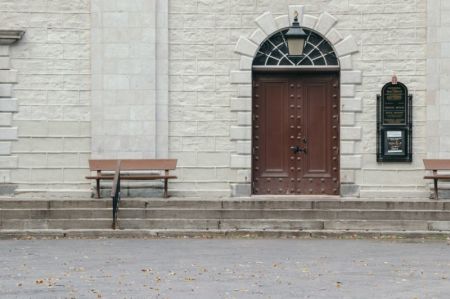Quebec gov't lowers indoor worship limit from 250 people to 50

Quebec announced that it is lowering the indoor worship limit in the Canadian province from 250 people to 50, with some areas having it lowered to 25 people.
Christian Dubé, Quebec’s minister of Health and Social Services, announced Sunday that indoor houses of worship and places that serve alcohol cannot have more than 50 people present.
Aimed at curbing the spread of COVID-19 in response to an overall rise in cases in the province, the rule applies to areas under the “green” or “yellow” alert status for infections.
For sectors designated as “orange,” among them Montreal and Quebec City, indoor facilities serving alcohol and houses of worship cannot have more than 25 people present.
Facilities exempted from these increased restrictions for all alert levels include auditoriums, cinemas, theaters and audiovisual recording studios, which can still have up to 250 people.
“Epidemiological investigations have shown that outbreaks are more particularly linked to gatherings. Thus, public health therefore recommends tightening the rules relating to gatherings in order to protect the population,” stated the government.
Some faith leaders, including Bishop Pierre Goudreault, head of the Roman Catholic Diocese of Sainte-Anne-de-la-Pocatiere, have criticized the new restrictions on in-person worship.
“I would like to recall that no outbreak of the coronavirus has occurred from a Catholic church. Why restrict gatherings there when the participants in Masses are exemplary in their way of respecting and practicing sanitary measures?” stated Goudreault, as reported by Catholic News Service.
Cardinal Gérald Cyprien Lacroix, vice president of the Assembly of Catholic Bishops of Quebec and spokesman for the Quebec Interreligious Working Group, labeled the decision “erroneous.”
“They put us in a category of bars,” stated the cardinal, as reported by the Canadian Broadcasting Corporation. “People are really feeling this is discrimination against faith; against worshiping.”
As part of the effort to combat the coronavirus pandemic, many governments have issued various measures aimed at limiting in-person gatherings, both religious and secular.
Periodically, these efforts have been met with fierce criticism from those believing that they unfairly target churches while giving preferential treatment to similar nonreligious gatherings.
In August, RealClearScience published a report which indicated that social distancing measures among Catholic churches in the United States were working to reduce infections.
“With approximately 17,000 parishes in America typically holding three or more weekend masses — and a greater number of daily masses — for the last 14 or more weeks — over one million public masses have been celebrated following guidelines to prevent the spread of the virus: in sum, follow the three W’s — watch your distance, wear your mask, and wash your hands,” explained the report.
“… for Catholic churches following these guidelines, no outbreaks of COVID-19 have been linked to church attendance, even though we have examples … of asymptomatic, unknowingly infected individuals attending mass and other parish functions.”
The report added that it “found no evidence of viral transmission” among those who attended a Catholic mass that “could have led to an outbreak if appropriate precautions were not followed.”





















